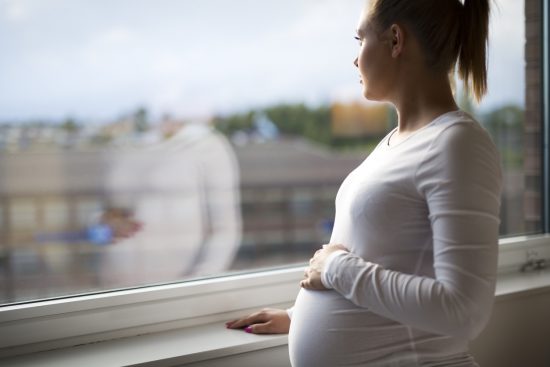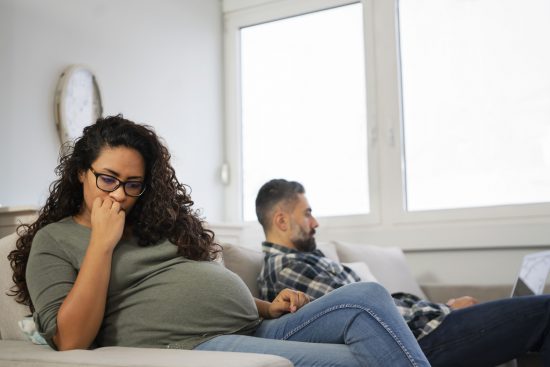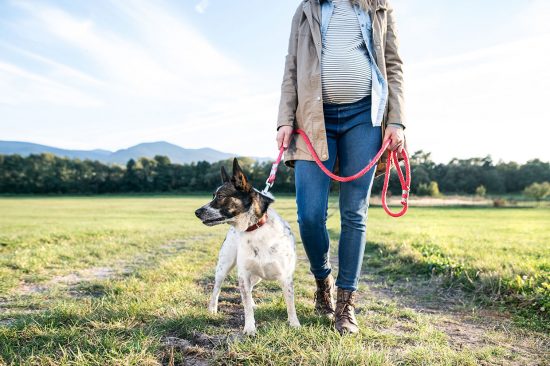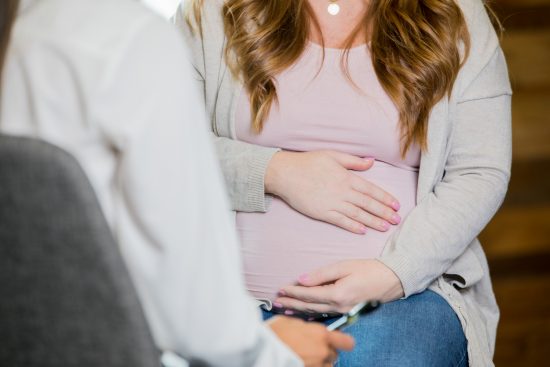While postnatal depression is becoming more talked about, prenatal depression is still relatively unknown. Here’s an overview.


Hands up if you’re pregnant and veering between utter joy, anger and emotional bouts of tears? Well, that’s completely normal; pregnancy is an emotional time.
But for some women, those standard pregnancy symptoms can be something more. We might be more used to hearing mention of postnatal depression. But around 12% of women actually experience antenatal or prenatal depression – depression that occurs during pregnancy.
Antenatal depression can happen at any point during pregnancy. Look out for:
Bear in mind that you won’t necessarily experience all of these symptoms. And some of them (e.g. reduced sex drive) are common in all pregnancies too.
This can make antenatal depression hard to spot but if you’re at all worried, flag it up to your GP or midwife.
Antenatal depression can be caused by a hormonal imbalance. Although, because all women experience hormonal changes when they’re pregnant, that’s unlikely to be the only cause.
Other things that may play a part are:

You might feel confused and isolated if you go through antenatal depression but the key thing is not to keep it to yourself. Instead, speak to your midwife as soon as possible.
Many women don’t open up about their depression in pregnancy because they’re embarrassed or worried about what people will think.
But spotting it early is key to getting better and to avoiding any potential impact of the depression on your developing baby.


Treatment can include:
Counselling and talking therapies
Medication
Combination of both
When you speak to your midwife about antenatal depression, they should ask about your mental health history. If they don’t, it’s important you fill them in.
If you’re planning to get pregnant (or are newly pregnant) and have a history of mental health issues, tell your midwife and/or GP too. Then they can discuss with you how to get the right support and care from the beginning.
NCT’s Isabelle talked to Rosey from PND and Me about antenatal depression, signs and support available. Watch the video on our NCT charity Facebook page.
Our support line offers practical and emotional support with feeding your baby: 0300 330 0700.
We also offer antenatal courses which are a great way to find out more about labour and life with a new baby.
We encourage parents to talk more openly about maternal mental health, to avoid the mistake of dismissing potentially serious mental health issues in themselves, friends or family, and to seek help if they need it.
Make friends with other parents-to-be and new parents in your local area for support and friendship by seeing what NCT activities are happening nearby.
NICE publishes a booklet Mental health problems during pregnancy and after giving birth covering antenatal and postnatal depression.
#PNDHour is an online peer support group that runs every Wednesday at 8pm via the Twitter account @PNDandMe. Anyone can join in to discuss topics about antenatal and postnatal depression (and other perinatal mental health illnesses), such as self-care, medication and seeking help. It’s run by a mum called Rosey who also blogs about her own experiences with antenatal and postnatal depression, as well as raising awareness of perinatal mental illness, at PND and me.